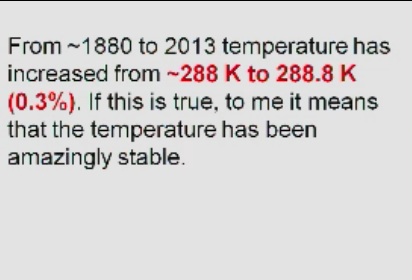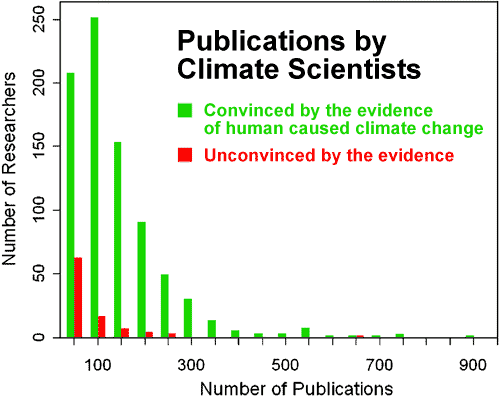 Cartoon from xkcd which describes the behavior of Ivar Giaever to a 'T'
Cartoon from xkcd which describes the behavior of Ivar Giaever to a 'T'We often see scientists from non-climate fields who believe they have sufficient expertise to understand climate science despite having done minimal research on the subject; William Happer, Fritz Vahrenholt, and Bob Carter, for example. As he admits in his own words, Nobel Prize winning physicist Ivar Giaever fits this mould perfectly:
"I am not really terribly interested in global warming. Like most physicists I don't think much about it. But in 2008 I was in a panel here about global warming and I had to learn something about it. And I spent a day or so - half a day maybe on Google, and I was horrified by what I learned. And I'm going to try to explain to you why that was the case."
That quote comes from a presentation Giaever gave to the 62nd Meeting of Nobel Laureates in 2012, for some unknown reason on the subject of climate change. As Giaever notes at the beginning of his talk, he has become more famous for his contrarian views on global warming than for his Nobel Prize, which have made him something of a darling to the climate contrarian movement and climate denial enablers.
In this post we will examine the claims made by Giaever in his talk, and show that his contrarian climate opinions come from a position of extreme ignorance on the subject, as Giaever admits. Giaever personifies the classic stereotype of the physicist who thinks he understands all scientific fields of study:
 Cartoon from xkcd which describes the behavior of Ivar Giaever to a 'T'
Cartoon from xkcd which describes the behavior of Ivar Giaever to a 'T'
In his talk, Giaever spent a lot of time criticizing Al Gore and Rajendra Pachauri (IPCC chairman) for winning the Nobel Peace Prize for - according to Giaever - 'making the global surface temperature record famous' (Figure 1).
Figure 1: Various global surface and lower troposphere temperature data sets.
Giaever proceeded to question the accuracy of the surface temperature record, ultimately asking:
"How can you measure the average temperature of the Earth? I don't think that's possible."
Unfortunately this simply displays an ignorance regarding the surface temperature record, whose accuracy has been confirmed time and time again, and which is also consistent with lower troposphere temperature measurements, as illustrated in Figure 1.
Glenn Tramblyn has answered Giaever's question in great detail in his four part series Of Averages & Anomalies, and Kevin C also had an excellent and detailed post on recent temperature measurements in The GLOBAL global warming signal. The answers to these questions are out there for those who are willing to spend more than a few hours on Google searches, and it is not constructive to give presentations on subjects without first doing such basic research. We are again left wondering why Giaever was asked to give a presentation to Nobel Laureates on a subject on which he has no expertise and has not done even the most basic research.
Giaever also disputed the significance of the measured 0.8°C average global surface warming over the past 130 years, comparing it to a human fever and the temperature at which he had to maintain tissue for cell growth during his own biophysical experiments, also showing the following slide:

Giaever does not seem to know how to put the observed 0.8°C global surface temperature change in proper context. It may sound small in comparison to the absolute global temperature in Kelvin, or in comparison to changes in human body temperatures, but it is a very large change in global surface temperature, especially over a period as brief as 130 years (Figure 2).
Figure 2: Eight records of local temperature variability on multi-centennial scales throughout the course of the Holocene, and an average of these (thick dark line) over the past 12,000 years, plotted with respect to the mid 20th century average temperature. The global average temperature in 2004 is also indicated. (Source)
In addition to this rapid surface warming, the global oceans have also been accumulating heat at an incredible rate - the equivalent of more than two Hiroshima "Little Boy" atomic bomb detonations per second, every second over a the past half century. Presumably a physicist of Giaever's stature would appreciate the magnitude of this global energy accumulation.
As a physicist, Giaever should also understand that seemingly small objects and quantities can have large effects, but instead he seems to rely on incorrect "common sense" perceptions which are based on ignorance of the subject at hand.
As another example of this behavior, Giaever proceeds to demonstrate that he also does not understand the role of the greenhouse effect in climate change.
"Water vapor is a much much stronger green[house] gas than the CO2. If you look out of the window you see the sky, you see the clouds, and you don't see the CO2."
Needless to say, the second sentence above represents a very bizarre argument. Giaever is either arguing that CO2 is a visible gas (it is not) and the fact that you can't see it means there is too little in the atmosphere to have a significant warming effect, or that only visible gases can warm the planet, or some other similarly misinformed assertion.
That clouds are visible to the human eye and CO2 isn't simply is not relevant to the greenhouse effect and global warming. It's also worth noting that like CO2, water vapor is not visible - clouds are condensed water droplets, not water vapor.
Additionally, water vapor does not drive climate change. There is a lot of it in the atmosphere, so it is the largest single contributor to the greenhouse effect. However, water vapor cannot initiate a warming event. Unlike external forcings such as CO2, which can be added to the atmosphere through various processes (like fossil fuel combustion), the level of water vapor in the atmosphere is a function of temperature. Water vapor is brought into the atmosphere via evaporation - the rate depends on the temperature of the ocean and air. If extra water is added to the atmosphere, it condenses and falls as rain or snow within a week or two. As Lacis et al. (2010) showed, as summarized by NASA (emphasis added):
"Because carbon dioxide accounts for 80% of the non-condensing GHG forcing in the current climate atmosphere, atmospheric carbon dioxide therefore qualifies as the principal control knob that governs the temperature of Earth."
Giaever continues ticking off the most common climate myths, going from arguing that it may not even be warming, to claiming the warming is insignificant, to asserting the warming is caused by water vapor, and ultimately that the warming is indeed caused by human influences:
"Is it possible that all the paved roads and cut down forests are the cause of "global warming", not CO2? But nobody talks about that."
Climate scientists do of course investigate and discuss the effects of deforestation and urban influences. The 2007 IPCC report discusses the influences of deforestation on climate in great detail, for example here and here, and devotes a section to policies aimed at reducing deforestation here. The United Nations has also implemented the Collaborative initiative on Reducing Emissions from Deforestation and forest Degradation (REDD) to address the effects of deforestation on climate change. In short, by claiming that nobody has considered the effects of deforestation on climate, Giaever once again demonstrates that he simply has not done his homework.
The IPCC report also discusses the influences of urban heat islands and land use effects here and here, for example. Giaever then claims that one person has talked about these effects - US Secretary of Energy and fellow Nobel Laureate Steven Chu, who suggested paining roofs white to offset some warming, though he does not discuss Chu in a very flattering light.
"[Chu has] been bought by the global warming people, and he's now helping Obama trying to make green energy in the United States."
In the presentation in question, Chu described the potential effects of the white roof proposal as follows:
"Making roads and roofs a paler color could have the equivalent effect of taking every car in the world off the road for 11 years"
Chu discusses white roofs as a geoengineering possibility in response to greenhouse gas-caused climate change, as a way to offset a small portion of the global warming our fossil fuel combustion and associated carbon emissions are causing.
At this point we're 9 minutes into Giaever's 32-minute presentation, and he begins comparing climate science to religion. Yet based on his arguments in those first 9 minutes, it's clear that Giaever has not done even the most basic climate research, so how can he possibly make such a radical determination?
While Giaever is certainly a highly accomplished physicist, that does not automatically make him a climate expert as well. As Giaever himself has admitted, he has spent very little time researching the subject, and it shows. He simply bounces from one climate myth to the next, demonstrating a lack of understanding of Climate Science 101, and then insults the entire scientific field by comparing it to a religion, bringing life to the xkcd cartoon at the top of this post.
Memo to climate contrarians - expertise comes from actually researching a subject. There is a reason why scientists who have researched climate change in the most depth are also the most likely to be convinced that global warming is human-caused (Figure 3).

Figure 3: Distribution of the number of researchers convinced by the evidence of anthropogenic climate change (green) and unconvinced by the evidence (red) with a given number of total climate publications (Anderegg 2010).
In his talk, Giaever complained that he had become famous for his climate contrarianism, which he claimed indicated that dissenting opinions on the subject are not welcome. On the contrary, Giaever has been criticized for repeating long-debunked climate myths which he could have easily learned about through a little bit of research - by perusing the Skeptical Science database, for example, where we have debunked all of his Googled climate misconceptions.
Instead, Giaever has used his position of scientific authority as a Nobel Laureate to misinform people about a subject on which he has not even done the most basic research. That is not how a good scientist should behave, and that is why Giaever has rightfully and deservedly been criticized. Giaever finishes his talk by proclaiming
"Is climate change pseudoscience? If I’m going to answer the question, the answer is: absolutely."
The problem is that Giaever has not done his homework, which is why he gets the wrong answer, and his presentation deserves a failing grade. Ironically, Giaever defines "pseudoscience" as only seeking evidence to confirm one's desired hypothesis, which is precisely how Giaever himself has behaved with respect to climate science.
Listening to Giaever's opinions on climate science is equivalent to giving your dentist a pamphlet on heart surgery and asking him to crack your chest open. While climate science has a basis in phyiscs (and many other scientific fields of study), it is an entirely different subject, whose basics Giaever could undoubtedly grasp if he were willing to put the time in to do his homework.
But individual scientists (even Nobel Laureates) suffer from cognitive biases like anyone else. That's why we don't rely on indvidual scientists or individual papers to draw conclusions about climate change. The only way to get an accurate picture is through the work of many scientists, peer reviewed and scrutinized over decades and tested against multiple lines of evidence. Giaever demonstrates how far cognitive bias - reinforced by a few hours of Googling - can lead anyone to the wrong conclusions, and also proves that no individual's opinion, regardless of his credentials, can replace the full body of climate science evidence.
Note: for climate-related talks at the same conference made by Nobel Laureates who have actually researched the topics in their presentations, see these videos of Paul Crutzen and Mario Molina.
Posted by dana1981 on Thursday, 12 July, 2012
 |
The Skeptical Science website by Skeptical Science is licensed under a Creative Commons Attribution 3.0 Unported License. |